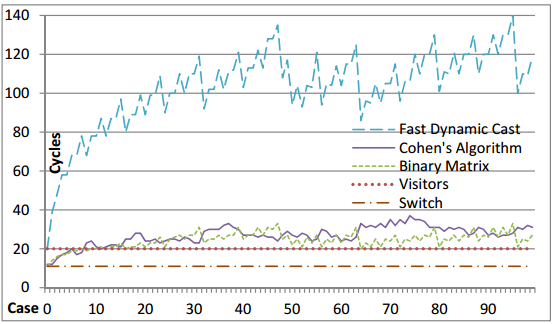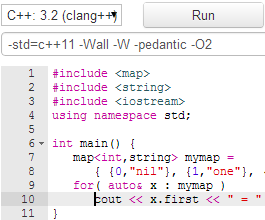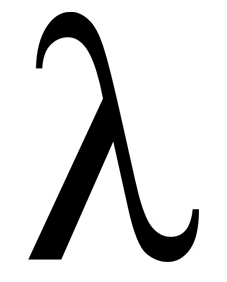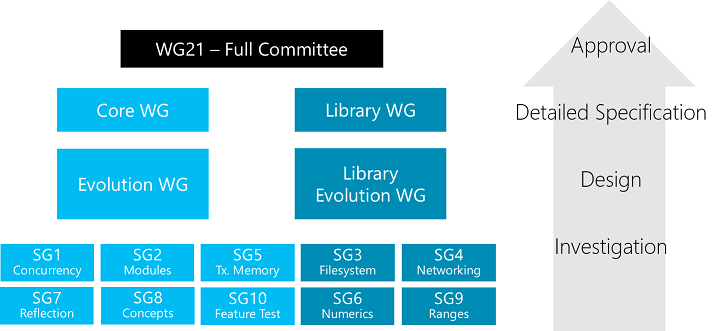New forum active: SG8 (Concepts)
A new publicly readable committee forum is now available on the Forums page:
SG8 : Concepts
Near-term focus is on a convergence between the
static ifproposals and the parameter-type-constraints subset of concepts.
Note that this forum is for standardization of a new feature; do not expect the features mentioned in this forum to be available yet in your own compiler. However, if you're interested in seeing the shape of the feature as it advances to being approved by the committee likely in the near future, this forum is for you.
For information about this and other SGs, see also:
- Standardization | The Committee -- Subgroups and Study Groups
- Standardization | Standing Documents | SD-3 -- Study Group Organizational Information


 Many people don't realize how many web pages offer access to try out C++ compilers, including many of the latest compilers with burgeoning C++11 language support. So we thought we'd publish a list.
Many people don't realize how many web pages offer access to try out C++ compilers, including many of the latest compilers with burgeoning C++11 language support. So we thought we'd publish a list.
 In December, we
In December, we  This week, Faisal Vali shared an initial "alpha" implementation of generic lambdas in Clang. Faisal is the lead author of the proposal (
This week, Faisal Vali shared an initial "alpha" implementation of generic lambdas in Clang. Faisal is the lead author of the proposal (